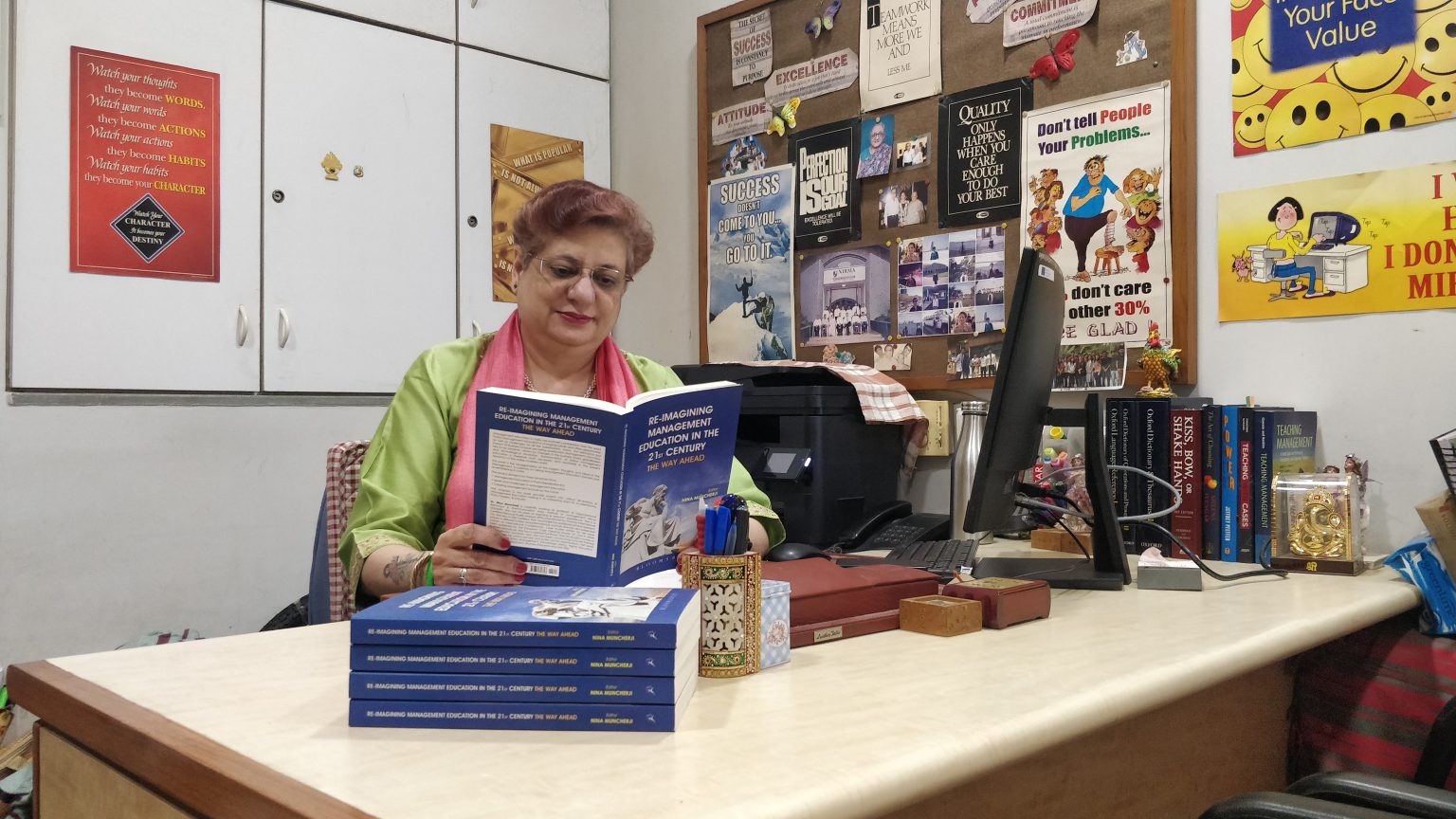
Patents granted

Nirma University releases book on ‘Re-Imagining Management Education in the 21st Century: The Way Ahead’

Today’s management education is changing rapidly and offers opportunities as well as challenges for all the stakeholders. Management education has to be dynamic, driven by changes in the business world, globalisation and technological revolution. Keeping this in mind, Nirma University with the publisher Bloomsbury came up with the book, ‘Re-Imagining Management Education in the 21st Century: The Way Ahead’.
Here is an interview with the Editor of the book Dr Nina Muncherji, Associate Professor, Institute of Management, Nirma University.
Q. How much time did you take to compile and finish the editing of the book?
It took me two years to publish the book. Institute of Management, Nirma University, celebrated its Silver Jubilee in 2021. To flag off the year-long celebrations, a seminar was designed for academicians to share innovative and effective strategies of teaching, leading to enhanced student learning and engagement in Feb 2020. The overall aim of the seminar was to facilitate the teaching-learning process to improve the quality of Management Education. The seminar aimed at providing the nation’s academic leaders to showcase groundbreaking research and engage in dynamic discussions about an array of issues that affect the Management Academia. This book is the amalgamation of the insights, thoughts, and ideas of the Management Academia on taking Management Education forward and re-establishing its luster.
Q. Who is your audience?
Management education has evolved considerably over the years, but despite its existence for over a century, it is confronted with new challenges and today it stands at crossroads where we can see it is losing its luster. The book is for everyone who wants to understand the past, present and future of management education, who want to see management education regain its glory.
Q. What is your favourite section from the book?
My favourite section of the book is one on ‘Creating Management Schools for the Future’. Over the last two years with the pandemic things have changed drastically and it forced the management teachers and gurus to reimagine MBA, to make it relevant. The section deals with a wide variety of papers focusing on making MBA more relevant, engaging students, issues related to gender equality, diversity and inclusion and the new formats of MBA to make it more effective. Thus, it leaves one with hope and create a path to make management education more contemporary.
Q. What are the key takeaways from the book?
The key takeaways from the book are:
Q. How is it going to help the students or the faculty members referring the book?
The faculty members who refer the book will get insights on the ‘what’ and ‘why’ of the changes taking place in the Management Education. It will help them to understand these changes and how to deal with the dynamics so as to re-imagine the management education, helping it to regain its past glory. It can also be valuable to the faculty as a resource to help them with their research in the field of higher education.
Students will also benefit by getting insights into the past, present and evolving landscape of management education.
Q. What was the most challenging part of finishing the book?
The book as mentioned was intended to make a meaningful contribution to the field of management education as a part of the Silver Jubilee Celebrations of the Institute of Management, Nirma University. The greatest motivation and support for this project came from Dr Anup K Singh, Director General, Nirma University.
However, there was a challenging part to this project and it was getting all the contributors to send in their papers. As we know all academicians are multitasking these days, with all the other responsibilities which they shoulder, writing a paper for the book was not one of the top priorities. I had to do constant follow up with the contributors, with the publishers, and owing to my other academic commitments the publication of the book got delayed a bit.
Q. What makes your book different from other similar books available in the market?
Most often edited books are papers from conferences which are put together in the form of a book. This book is a compilation of invited papers from academicians of repute from reputed B-Schools both national and international.
Other similar books look at one broad theme, but in this book, we look at three broad themes:
The papers are contemporary. The chapters in the book provide insights into various dimensions of Management Education making it an interesting read for Academicians, Policy Makers, & Practitioners. The biggest differentiator is the interview with none other than the Management Stalwart ‘Dr Jagdish Sheth’ on his views on the evolving landscape of management education in India.
Thus, on the whole I would like to state that editing this book has been a very enriching experience for me; right from the selection of the title, to designing the cover of the book. Be it in getting in touch with the publishers and authors, getting budget approval, I received complete support from the management at Nirma University.